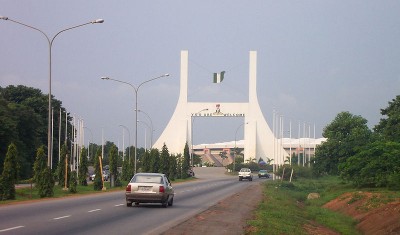 Nigeria has started 2016 grappling with modalities that will make the year a more peaceful and progressive one for its people. The Federal Government has continued to make efforts to overcome some of the country’s difficult national concerns.
Nigeria has started 2016 grappling with modalities that will make the year a more peaceful and progressive one for its people. The Federal Government has continued to make efforts to overcome some of the country’s difficult national concerns.
Last year was a difficult one for Nigeria and Nigerians, especially with the security crisis in the North-East and deteriorating state of the economy. It was also a year with a lot of promise, best symbolised in the successful general elections and transition to a new government at the centre and in some states in the country. In 2015, the Nigerian people demonstrated determination and commitment to democracy during the elections and resilience as insecurity grew.
One of the greatest challenges last year was the Boko Haram insurgency. Like in the 2014, Nigeria lost part of its territory to insurgents that had the audacity to raise their flags on territory they had wrestled off our armed forces. Over 20,000 people have been killed by the insurgency so far, 2.2 million people have been internally displaced, and at least 175,000 have fled as refugees to the neighbouring countries of Niger, Chad and Cameroon, creating a huge humanitarian crisis. President Muhammadu Buhari gave a deadline to our armed forces to defeat the insurgency, which expired on December 31st, 2015.
Significant progress has been made in degrading the capacity of the insurgents to fight. Most of the territory lost has been recovered and the insurgents are on the run. As they run, however, they continue to kill and destroy. They have also expanded the suicide bombing missions often using innocent young girls.
Our wish for 2016 is complete success in eliminating the insurgency. This would require a continuation of armed combat from the armed forces. It would however require even more improved intelligence, raising the security consciousness of communities to monitor their society to stop infiltration. Above all, religious and traditional leaders need to be more proactive in socialising their followers against indoctrination into radical extremism. Let 2016 become the year the Nigerian polity and society is able to organise to totally defeat extremism.
The Buhari Administration has prioritised the struggle against corruption in its agenda and they have had a clear focus on it since coming into power. There have been shocking revelations about mega-looting from our treasury and prosecutions have started. It is gratifying that the Federal Government is clearly committed to prosecuting corrupt public officials and recovering the loot they took. It is not easy fighting corruption because the resources at the hands of corrupt individuals are immense and the culture of corruption is deep rooted and omnipresent. Precisely for these reasons, there must a national conversation about the most effective strategies for combating corruption. The President and his Advisory Committee on Corruption should engage Nigerians on the strategy they have adopted to get wider input and carry other anti-corruption crusaders along.
Our wish for 2016 is the development of a strong anti-corruption movement that would lead the campaign and create traction in the war against corruption. As the year proceeds, we hope to see successful prosecutions of corrupt public officials who are sent on long jail terms and from whom the loot stolen is recovered.
Nigeria’s territorial integrity has been strained in 2015, not only because of the Boko Haram insurgency but also due to sharp mobilisation over the reincarnation of Biafra, threats of resumption of militancy by Niger Delta and Oduduwa Republic militants, in addition to persistent conflicts between Nigerians defined as indigenes and settlers. All these indicate unease regarding the centralised and lopsided nature of the Nigerian Federation. The National Conference called by the Jonathan Administration to address these issues made some useful proposals.
In 2016, Nigerians must find ways of continuing the conversation about the nation and how best to build and consolidate it. How best can we share powers between the federal, state and local governments in the country? Is devolving political and economic powers to the states, local governments, cities and other municipalities at the grass roots level in the country the best way forward? How do we address the persistent problems associated with the lack of competence, transparency and accountability at the local level? Nigeria cannot afford another huge national conference at this time. Nonetheless, modalities to continue these conversations must be devised and practicalised.
Over the past few weeks, another fault line has been revealed by the clash between the Islamic Movement of Nigeria, popularly known as the Shiites, and the Nigerian Army. The Shiites have, over the past decades, turned themselves into a group with no respect for our laws and have often made the lives of ordinary Nigerians neighbouring their places of activity extremely difficult. Be that as it may, as it is usually said, two wrongs cannot make a right. The massacre of hundreds of their members in an extra judicial manner is totally unacceptable. A high-powered judicial commission of inquiry to investigate the issue should be established and those found to have broken the law must be punished.
Over and beyond the specific clash, we need to accept that there must be regulation of the activities of religious organisations in general. We continue to allow them break our laws at our own peril. Massive noise pollution from religious organisations, indoctrination into cult organisations, blocking of streets and highways and inciting people with hate and dangerous speech are all issues the Nigerian State has to address.
Our prayers for 2016 in this regard is that Nigeria must cease to be a country where free-for-all action by groups are tolerated simply because they say that they are a religious group.
END

Be the first to comment